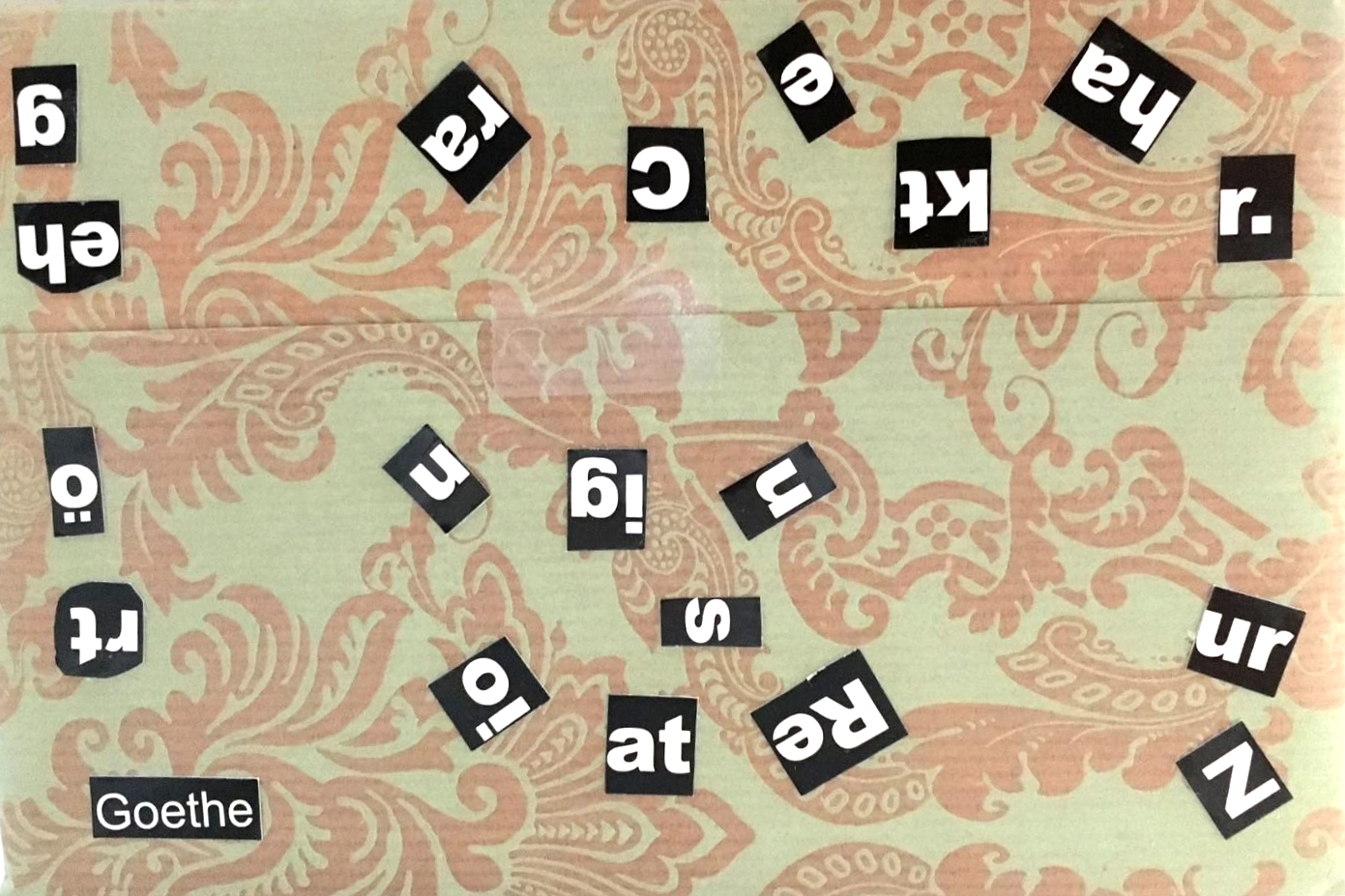| It can be very cathartic to let words flow spontaneously |
to transform dream symbols into written form. In a similar way our dreamwork may be enhanced by writing extemporaneously.
Jung discussed art forms such as poetry and prose in relation to his psychology in an article of volume 15 of his collected works. In many of his writings he referenced the symbolism of Goethe's Faust and Nietzsche's Zarathustra. In his own journal Jung wrote a now well-known Gnostic text spontaneously from the unconscious within a few days.
As with the use of images or music, writing may give spontaneous access to unconscious material, especially when the conscious mind does not intervene.
| Free association, incomplete sentences, leaps of thought, |
writing in different colors or on different forms of paper are an ideal way to open up new perspectives in a playful way.
The relative subtlety of using writing as a means of expression, as opposed to music or images, reflects the evolution of human senses; see, e.g., The Master and His Emissary by Iain McGilchrist:
Survival required first and foremost the ability to see both threats and necessities. Then adaptive advantages for humankind resulted from the creation of rhythmic sounds. Such rudimentary music facillitated tribal cohesion and permitted communication over distances.
It was only later in human evolution that verbal faculties and written language developed. An interesting approach for bringing inner content to verbal expression is given by Focusing according to Eugene Gendlin.
Alone or in a group: improvised writing is fun!
